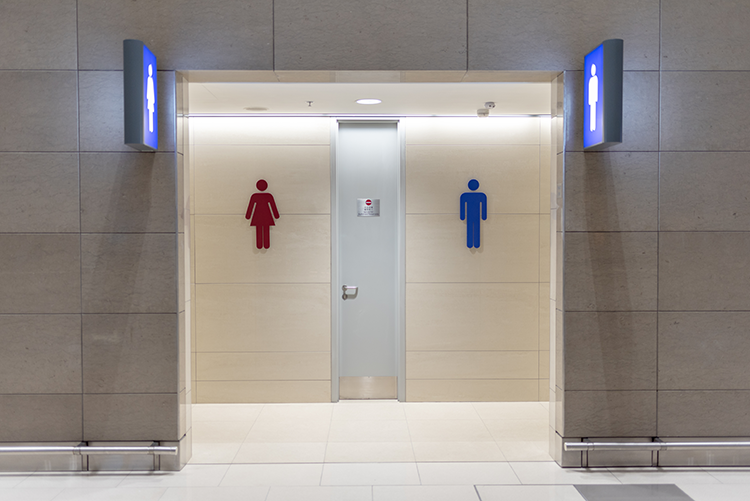9 minutes read
Updated Aug 29, 2025
Gen Z lawyers are reshaping the legal profession with distinct expectations for their careers. To attract and retain this influential talent, law firms must adapt their traditional practices to align with Gen Z’s priorities.
Flexible schedules and genuine work-life balance are non-negotiable for Gen Z attorneys.
They expect modern legal technology that streamlines workflows and reduces busywork.
Purpose-driven work and meaningful mentorship are prioritized over traditional prestige or hierarchical structures.
Firms must provide consistent feedback and diverse career paths beyond the traditional partnership track.
Gen Z lawyers—born between 1997 and 2012—are stepping into the profession with expectations that are rewriting the rules of law firm life. They want flexible schedules, meaningful mental health support, and technology that reduces busywork instead of creating it. They ask direct questions about lawyer work-life balance and often choose smaller firms with strong cultures over BigLaw positions.With the oldest Gen Z lawyers now in their late 20s, this generation comprises nearly 30% of the global population, and their influence on the legal industry is already reshaping traditional practices. For firms, this means culture, technology, and growth opportunities will increasingly determine who wins the talent war in the years ahead. In this post, we’ll explore what matters most to Gen Z lawyers, how they’re redefining career success, and what firms can do to stay competitive.
Ready to support the next generation of lawyers with the tools and flexibility they expect? Book a demo to see how Clio empowers modern law firms with the technology today’s lawyers need to work—anytime, anywhere.
Who are Gen Z lawyers?
Gen Z attorneys are typically aged 25 to 28 as they enter the legal profession, representing the oldest members of a generation born between 1997 and 2012. As digital natives who grew up with smartphones, social media, and instant access to information, they think, learn, and work differently than previous generations. They expect genuine work-life balance, mental-health support, and modern legal technology that helps them work smarter. And they won’t hesitate to leave firms that don’t offer the right culture, flexibility, or growth opportunities.
What sets Gen Z lawyers apart?
Understanding what drives Gen Z as lawyers requires looking beyond surface-level preferences to their core values and expectations. Here’s what firms need to understand about this generation.
They expect technology to help them work smarter. Legal practice management systems and mobile apps that provide effortless access to case and client information from anywhere are now expectations for these digital natives. They reject endless email chains, don’t understand why paper-based documents still exist, and prefer streamlined communication, seeking legal workflow automation that eliminates manual processes.
Purpose matters more than prestige. Traditional markers like BigLaw names and corner offices carry less weight than meaningful work. Deloitte’s latest Global Gen Z and Millennial Survey found that 89% consider a sense of purpose essential to job satisfaction and well-being. Many will even accept lower pay for work that aligns with their values and offers a stronger sense of long-term career fulfillment.
Boundaries aren’t negotiable. These young lawyers set clear limits on their availability because they’ve witnessed the burnout that comes without them. They deliver high-quality work during business hours while protecting personal time so they can recharge and stay effective long-term.
They need feedback to grow. Having grown up with instant feedback in every other area of life, they expect the same at work. They want regular check-ins, clear expectations, and immediate recognition for good work. This constant feedback loop accelerates their development and helps firms spot and fix issues early on.
More than generational quirks, these are shifts in workplace expectations that affect law firms every day. Firms that embrace these expectations will attract and retain top talent, while those that ignore them risk losing the lawyers who will define the next decade of practice.
Gen Z expectations vs. traditional legal norms
The tension between old and new approaches creates daily friction for legal professionals. In many BigLaw firms, you’ll often witness a familiar scene: seasoned partners who believe associates need to “pay their dues” working alongside 26-year-olds who are adamant the system needs to change. It’s a clash between two completely different ways of thinking about legal work. Here’s where the expectations of Gen Z lawyers collide with traditional legal norms:
Billable hours vs. quality of output: Gen Z lawyers grew up in a world where technology improves efficiency, so a compensation model that’s based purely on time spent feels backward to them. Meanwhile, many partners who built successful careers under the billable hour model consider it indispensable to law firm profitability.
Hierarchy vs. collaboration: Traditional firms operate on strict chains of command where junior associates wait years before their opinions carry weight. Gen Z lawyers, by contrast, are accustomed to flat organizational structures and open communication. When they spot inefficiencies or have innovative ideas, they expect to be heard.
Linear careers vs. flexible paths: The traditional model assumes everyone wants to make partner. But Gen Z lawyers often have more fluid career goals. Remarkably, only 6% say their primary career goal is reaching senior leadership. Some plan to go in-house after gaining experience. Others want to start their own practices or take sabbaticals for personal projects.
Face time vs. results: Partners who came up in an era where being seen in the office equaled dedication now manage associates who can work effectively from anywhere. Gen Z lawyers judge performance based on output and results, not hours logged at a desk.
These differences create natural tension, but they also raise important questions about how the legal profession operates. Firms that thoughtfully examine whether current practices serve everyone well—while preserving what works about traditional practice—will gain an edge in attracting and retaining exceptional talent.
Law firm challenges in attracting and retaining Gen Z

Firms face significant challenges in retaining emerging Gen Zs, and these problems stem from fundamental misunderstandings about what young lawyers actually need. With up to 50% of Gen Z workers reportedly disengaged from their jobs, law firms can’t afford to ignore these barriers.
Treating basics like perks
One of the most significant disconnects occurs when firms continue to treat flexibility and work-life balance as optional perks instead of basic requirements. Gen Z lawyers expect the ability to work from home a few days a week, set their own schedules when possible, and manage personal commitments independently. When firms present these as “extra” benefits, it sends the message that they don’t truly understand how legal work can be done effectively today. Korn Ferry research even shows that 40% of Gen Z associates begin job searching within two years, often citing culture and flexibility concerns.
Mentorship that doesn’t actually mentor
Gen Z wants real guidance and structured professional development, not just someone who assigns work and disappears. They expect mentors who understand what new lawyers need to succeed and help them get there. The traditional “figure it out yourself” approach leaves them feeling abandoned and undervalued.The numbers reveal this gap clearly. According to Deloitte, 50% of Gen Zs want managers who teach and mentor them, but only 36% say this actually happens. That disconnect between expectation and reality drives many talented young lawyers to look for opportunities elsewhere.
Technology that works against them
Outdated systems frustrate young lawyers daily in ways that directly impact their ability to do good work. When they have to use three different platforms to complete one task, or when basic processes take hours instead of minutes, they start questioning whether the firm is serious about efficiency. Over time, these tech frustrations can chip away at engagement, productivity, and even loyalty.
Career paths that assume everyone wants the same thing
The traditional 8–10 year partnership track can feel constraining for lawyers who might want to pivot, take a sabbatical, or explore completely different goals. Gen Z expects firms to offer flexibility and support for diverse career paths, rather than funneling everyone into a one-size-fits-all trajectory.
Recommendations: How law firms can adapt
Smart firms are already making changes that reflect the preferences of Gen Z lawyers. By adopting the following six strategies, your firm can create a workplace that attracts, retains, and empowers talent at every level.
Make flexibility the default. Gen Z lawyers value the ability to work where and when they can be most productive. Instead of treating remote work or flexible schedules as special privileges, make them standard practice. Focus on results and outcomes rather than hours logged or physical presence. Cloud-based practice management platforms make this possible, letting teams collaborate seamlessly whether they’re in the office, at home, or in court.
Build mentorship programs that develop talent. Gen Z wants legal mentors who actively guide them, teach practical skills, and sponsor their growth. Provide mentors with dedicated time and opportunities for meaningful interaction. Beyond mentorship, Gen Z lawyers benefit from structured learning opportunities and ongoing legal education that keeps pace with their career growth.
Modernize your tech stack. Outdated systems slow down work and create frustration. Invest in integrated technology that simplifies workflows instead of complicating them. The top legal software consolidates case management, time tracking, billing, and client communication into one centralized place. The result? Less time wrestling with systems and more time practicing law effectively—a win for associates and partners alike.
Transform DEI from policy to practice. Gen Z can spot performative diversity a mile away. Inclusive policies alone aren’t enough. They need to be reflected in who’s hired, promoted, and placed in leadership. Show authentic commitment through measurable actions, like diverse leadership pipelines, fair promotion practices, and active accountability. When lawyers see real representation and inclusion in action, it builds trust, engagement, and a stronger sense of belonging. (Learn more about DEI for law firms here).
Measure what matters. Billable hours alone don’t capture what makes a lawyer successful. Reward lawyers who improve processes, take smarter approaches, or deliver exceptional results, not just those who work the longest hours. Modern legal technology makes this easy by supporting a wide range of alternative billing arrangements, like flat fees or subscription-based billing options.
Give them meaningful work from day one. Young lawyers don’t want to spend years on endless document review or routine research. Instead, offer substantive projects, real client interaction, and genuine responsibility early on. With legal AI increasingly automating routine tasks traditionally assigned to junior staff, firms can now offer more substantive work to new associates from the beginning.
Research and surveys of Gen Z voices
Sometimes, the best way to understand a generation is to hear from them directly. Recent research and surveys reveal telling insights about what Gen Z lawyers want and what’s driving them away from traditional firms:
52% of Gen Z associates are willing to trade part of their salary for reduced billable hours, with women showing stronger preferences for this trade-off.
39% of Gen Z associates disagree or strongly disagree that associates at their firm were racially diverse.
More than one in four junior associates disagreed or strongly disagreed that their firms prioritize pro bono work (27%) or value social justice and responsibility (27%).
68% of young lawyers experience stress and anxiety due to student loan debt, with 67% feeling financial stress overall.
74% of Gen Z believe generative AI will impact the way they work within the next year.
6% of Gen Zs say their primary career goal is to reach a senior leadership position.
Of the 70% of Gen Z who said they would pursue employment at a law firm, just 39% said they would like to work for an Am Law 200 firm.
As much as 50% of Gen Z workers are reportedly disengaged from their jobs.
The final word on Gen Z lawyers
Gen Z lawyers are embracing legal tech to work smarter, championing flexible and forward-thinking business models, and reimagining the way they connect with colleagues and clients. As they move into leadership roles over the coming decade, their values will reshape everything from firm culture to client service delivery models. The firms that thrive will be those that embrace integrated practice management technology and provide the modern legal tools that help lawyers work more effectively. More importantly, they’ll recognize that Gen Z’s approach isn’t simply different. It can also be better, creating more sustainable, efficient, and fulfilling legal careers for everyone.
Want to future-proof your firm for the next generation of legal professionals? Book your free demo today to discover how Clio’s modern legal technology helps law firms attract, support, and retain Gen Z lawyers—on their terms.
Book a Clio demo
What values do Gen Z lawyers care about?
Gen Z lawyers prioritize work-life balance, mental health, purpose-driven work, diversity and inclusion, environmental responsibility, and open, transparent communication.
What practice areas are most popular among Gen Z lawyers?
Environmental law, tech law, social justice work, and emerging areas like cannabis law and cryptocurrency regulation attract Gen Z lawyers more than traditional corporate work.
What tech tools are Gen Z lawyers using?
Gen Z lawyers gravitate toward AI research tools, project management software, communication platforms like Slack, automation tools, and cloud-based practice management systems. They expect technology to make their work easier, not harder.
Loading …



























